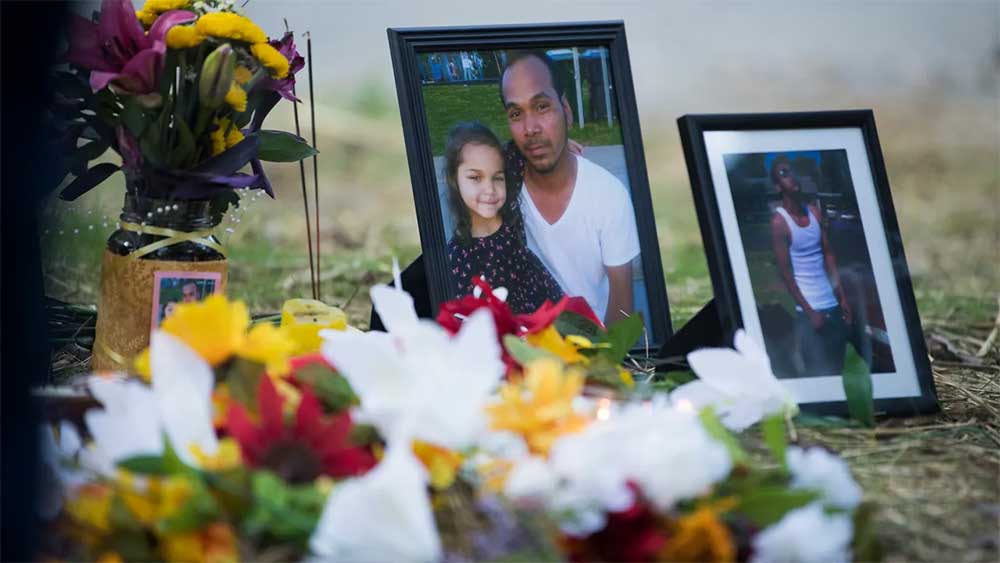Seeking Justice: The Tragic Story of Philly Pheap
In the pursuit of justice, sometimes, the path is long and arduous, and the outcome isn’t always what we hope for. This is the heartbreaking story of Philly Pheap, a Cambodian immigrant living in Knoxville, Tennessee, whose life was tragically cut short in an encounter with the police that left us questioning the value of life in our society.
Like many immigrants, Mr. Pheap’s journey to the United States was one of hope and dreams for a better life. Unfortunately, his life took a devastating turn on that fateful day in Knoxville, a day that would end his life and alter the lives of his loved ones forever.
In 2019, Pheap was involved in a hit-and-run accident while driving his girlfriend’s car. The police had the license plate number and arrived at his girlfriend’s apartment to investigate. What was supposed to be a routine inquiry quickly escalated into a tragic series of events.
As the police blocked the car from leaving and proceeded to her apartment, Pheap, perhaps overwhelmed by fear or misunderstanding, fled when the officers attempted to pat him down. What followed was a chaotic and frightening scene—a wrestling match, a chase, and ultimately, a gunshot that ended Mr. Pheap’s life. He was shot in the back by a Knoxville police officer.
During the summer of 2020, Knoxville faced a series of heartbreaking tragedies amidst the backdrop of the Black Lives Matter movement, sparked by the unjust death of George Floyd, and the ongoing global pandemic, characterized by daily deaths, mask mandates, and persistent political division. Immediately predating these tragedies was the untimely loss of Mr. Pheap, which resonated deeply within the community, leaving an enduring sense of pain and loss. The tragic event of Mr. Pheap’s shooting ignited continued and ongoing public outrage, adding to the BLM movement and prompting respected community leaders and social justice advocates, including former mayoral candidate Constance Every, to add this incident to the long list of concerns facing over-policed communities.
Meanwhile, Joshua Hedrick, a respected attorney at Knox Defense in Knoxville, was likewise deeply moved and affected by the tragedy of Mr. Pheap and the heartfelt request of Mr. Pheap’s family for Hedrick to seek justice for them. Though Joshua primarily focuses his practice on criminal defense, this case was an exception. Pheap’s family insisted on seeking justice, so he joined forces with a civil litigator to pursue a lawsuit based on the claim that Mr. Pheap’s wrongful death was a violation of his civil rights.
The legal journey was far from easy. The police officer in question claimed that Philly Pheap had grabbed his Taser and attempted to use it against him, but an eyewitness testified that the Taser discharged during the altercation and that Pheap did not discharge the weapon. The Taser’s “black box” recorded no voltage output, casting doubt on the officer’s account.
Despite these conflicting testimonies and the fact that Pheap was shot in the back while fleeing from a non-violent crime, the federal civil rights/wrongful death trial found the police officer not culpable for Philly Pheap’s death. It was a decision that left many of us questioning the system, the use of deadly force, and the value we place on human life. This outcome, the discrepancies between eyewitness accounts and police statements, the circumstances surrounding Mr. Pheap’s death, and the community’s outrage led to significant legislative changes. Consequently, law enforcement officers in Knoxville were mandated to wear body cameras, ensuring greater transparency and accountability in policing practices.
At Knox Defense, we believe that justice is not always about winning cases in a courtroom but about making a lasting impact for change. We firmly assert that there should never be a justification for homicide, whether criminal or not, when it results from a bullet chasing down a fleeing individual. We challenge the status quo, where deadly force is sometimes accepted as an everyday occurrence.
“Protect and serve” should not be a hollow promise. Philly Pheap’s case reminds us that there are moments when the principles of justice, fairness, and humanity must transcend legal boundaries. As lawyers, we respect the need for law and order in a civil society, but we also demand a greater consideration of the value of life from those entrusted to serve our communities.
Philly Pheap’s story is a tragic one, but it’s a story that compels us to keep fighting for justice, even when the odds seem insurmountable. It’s a reminder that we must continue to question and challenge the norms that perpetuate injustice and work tirelessly to ensure that every life is valued and protected, regardless of their mistakes or circumstances. Despite the tragedy of his story, Mr. Pheap’s death ultimately resulted in the requirement of body camera usage for law enforcement, forever impacting the cause of justice in the lives of thousands of individuals every year.
Posted in Constitutional Rights, Joshua Hedrick, Social Justice, The Rule of Law

FREE CONFIDENTIAL CONSULTATION

